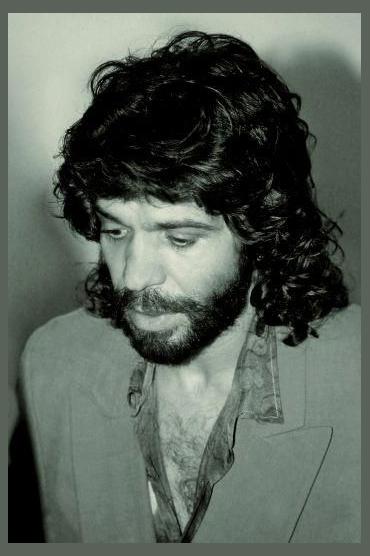 Camarón de La Isla
Camarón de La Isla
Camarón de La Isla: The Maestro of Flamenco
Camarón de La Isla, born José Monje Cruz, emerged as a musical force majeure, whose raw and passionate vocals transformed flamenco into a global phenomenon. His iconic song, "Soy Gitano," became an anthem for a people marginalized for centuries.
Early Life and Musical Beginnings
Camarón was born into a humble family in San Fernando, Cádiz, in 1950. His childhood was filled with the vibrant rhythms of flamenco, which he absorbed from his family and the local community. At a young age, his extraordinary talent was recognized, and he began performing at local festivals.
Collaboration with Paco de Lucía
In 1968, Camarón's life took a profound turn when he met the legendary guitarist Paco de Lucía. Their partnership would revolutionize flamenco, fusing traditional elements with modern influences. Their first album, "Almoraima," released in 1976, became a critical and commercial success, establishing Camarón as a leading voice in the genre.
Challenges and Controversies
Camarón's career was not without its obstacles. His unconventional style challenged flamenco orthodoxy, and he faced criticism from traditionalists. Additionally, he struggled with personal demons, including addiction, which impacted his health and performances.
Discography
Camarón's prolific discography includes over 20 studio albums, each showcasing his unique interpretation of flamenco. Notable works include:
* "Almoraima" (1976)
* "La Leyenda del Tiempo" (1979)
* "Soy Gitano" (1989)
* "Potro de Rabia y Miel" (1992)
Members
Camarón de La Isla's band typically consisted of:
* Camarón de La Isla (vocals)
* Paco de Lucía (guitar)
* Tomatito (guitar)
* Rubem Dantas (bass)
* Israel Suárez "Piraña" (percussion)
Legacy
Camarón de La Isla passed away tragically in 1992 at the age of 41. Despite his untimely demise, his music continues to inspire and captivate audiences worldwide. He is considered one of the greatest flamenco singers of all time, and his legacy as a pioneer and innovator of the genre remains unparalleled. His song "Soy Gitano" has become a timeless anthem of pride and identity for the Romani people.
Camarón de La Isla, born José Monje Cruz, emerged as a musical force majeure, whose raw and passionate vocals transformed flamenco into a global phenomenon. His iconic song, "Soy Gitano," became an anthem for a people marginalized for centuries.
Early Life and Musical Beginnings
Camarón was born into a humble family in San Fernando, Cádiz, in 1950. His childhood was filled with the vibrant rhythms of flamenco, which he absorbed from his family and the local community. At a young age, his extraordinary talent was recognized, and he began performing at local festivals.
Collaboration with Paco de Lucía
In 1968, Camarón's life took a profound turn when he met the legendary guitarist Paco de Lucía. Their partnership would revolutionize flamenco, fusing traditional elements with modern influences. Their first album, "Almoraima," released in 1976, became a critical and commercial success, establishing Camarón as a leading voice in the genre.
Challenges and Controversies
Camarón's career was not without its obstacles. His unconventional style challenged flamenco orthodoxy, and he faced criticism from traditionalists. Additionally, he struggled with personal demons, including addiction, which impacted his health and performances.
Discography
Camarón's prolific discography includes over 20 studio albums, each showcasing his unique interpretation of flamenco. Notable works include:
* "Almoraima" (1976)
* "La Leyenda del Tiempo" (1979)
* "Soy Gitano" (1989)
* "Potro de Rabia y Miel" (1992)
Members
Camarón de La Isla's band typically consisted of:
* Camarón de La Isla (vocals)
* Paco de Lucía (guitar)
* Tomatito (guitar)
* Rubem Dantas (bass)
* Israel Suárez "Piraña" (percussion)
Legacy
Camarón de La Isla passed away tragically in 1992 at the age of 41. Despite his untimely demise, his music continues to inspire and captivate audiences worldwide. He is considered one of the greatest flamenco singers of all time, and his legacy as a pioneer and innovator of the genre remains unparalleled. His song "Soy Gitano" has become a timeless anthem of pride and identity for the Romani people.